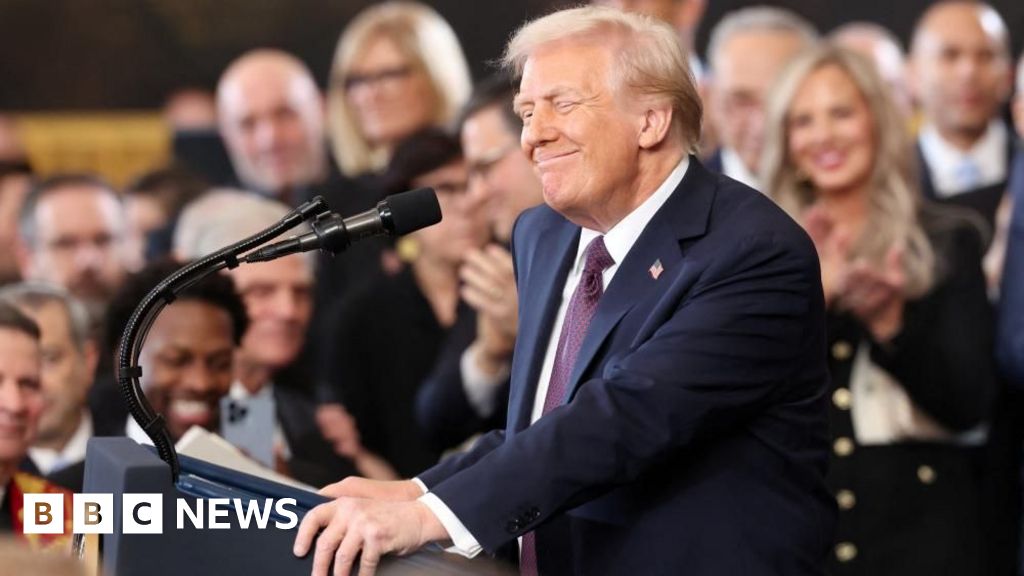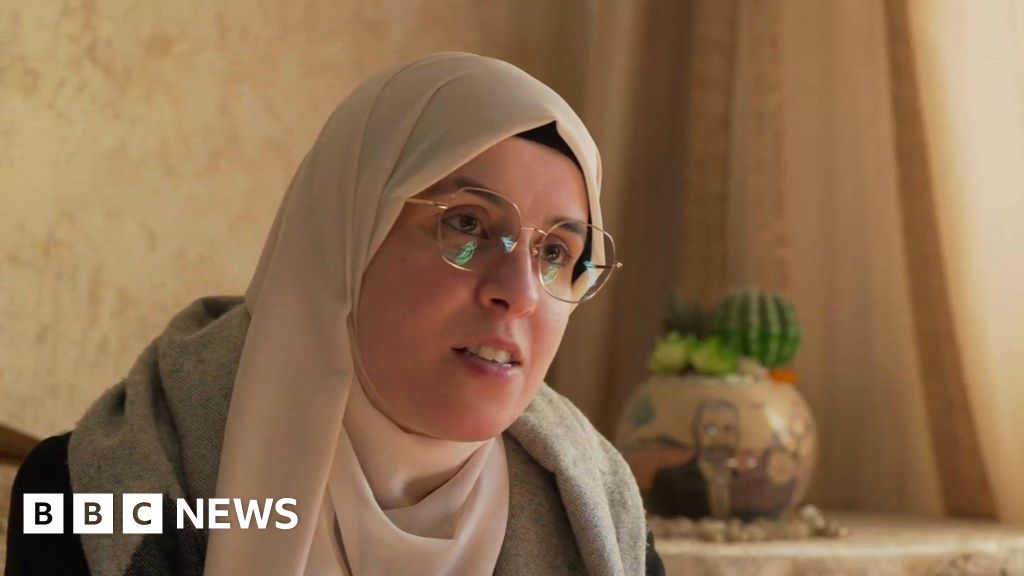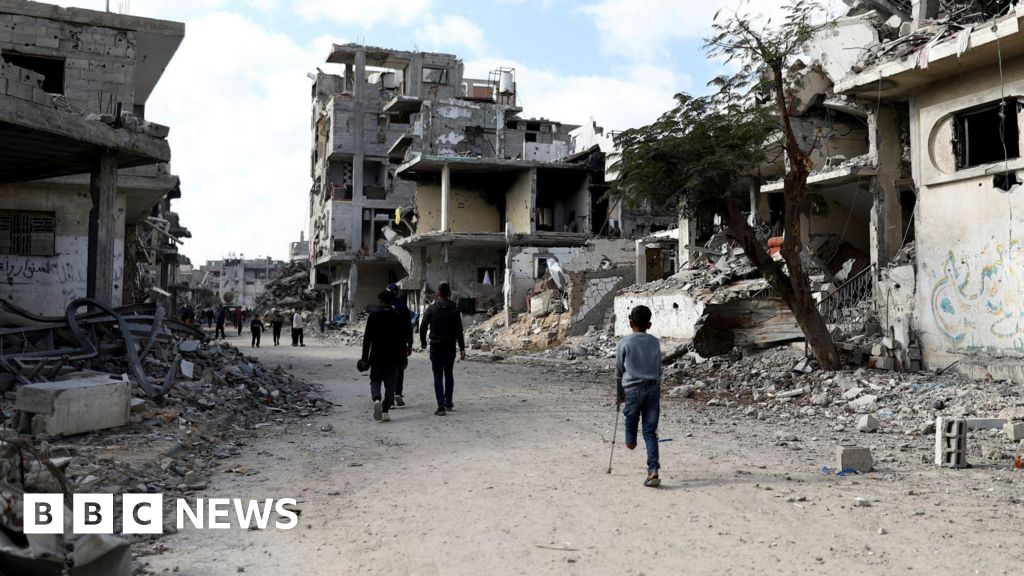ARTICLE AD BOX
8 minutes ago
Lucy Williamson,Middle East correspondent
Hezbollah rockets have sparked days of bushfires in northern Israel, with swathes of forest reserve destroyed and 11 people hospitalised for smoke inhalation.
Patches of scorched earth start to appear half an hour out from the Lebanon border, plumes of grey smoke mapping the route to either side across the hills.
Local residents in Israel’s largely-deserted northern communities, have been battling scattered fires for several weeks. One member of a civil defence team said there had been 15-16 fires in the area since then. But high temperatures over the past few days have led to a sharp increase.
Firefighters on Monday battled for 20 hours to put out fires around the town of Kiryat Shmona.
The fires – which forest administrators say have so far burned through 3,500 acres of land – are fuelling fresh demands that Israel’s government take steps to end the escalating conflict with Hezbollah on its northern front.
Israel’s war cabinet was due to meet on Tuesday evening to discuss the worsening security situation along its northern border. Israel and Hezbollah have been trading cross-border fire on a near daily basis since last October and recent weeks have seen an escalation in the intensity of attacks.
Residents of one kibbutz said the Hezbollah rocket attacks were “definitely” linked to Israel’s actions in Gaza, and that since the Israeli military's ground operation in the southern Gaza city of Rafah began, three or four rockets were flying over their houses every day.
Tens of thousands of residents, evacuated from the area after the Hamas attacks on Israel, are still waiting to return to their homes. But government deadlines to secure these areas keep slipping.
Many of these displaced residents see a ceasefire in Gaza as the key to calming the situation in the north.
But Israel’s far-right security minister, Itamar Ben-Gvir, visiting firefighters in the nearby town of Kiryat Shmona today, said the government’s response to Hezbollah’s rockets should be war.
“No peace in Lebanon while our land is being targeted,” he said.
Herzl Halevi, Israel’s army chief of staff, also visiting the region, said the country was “approaching the point where a decision will have to be made.”
The Israel Defence Force, he said, was “prepared and ready to move to an offensive.”
Hezbollah’s deputy chief, Sheikh Naim Qassem, told Al-Jazeera that the group was not seeking to widen the conflict with Israel but that any Israeli expansion of the war would be met “with devastation”.
The government has been keen to contain this conflict on its northern border, aware that Hezbollah is a better-trained and better-equipped enemy than Hamas – and that fighting here would be a very different kind of war.
But the fires have put this grinding forgotten conflict squarely on the front pages of national newspapers, and Israel’s Prime Minister Benjamin Netanyahu is under fresh pressure to act.
He and Hamas leader Yahya Sinwar in Gaza are already at the centre of delicate negotiations over a potential ceasefire and hostage exchange deal in Gaza, which US President Joe Biden is pushing both sides to accept.

 7 months ago
26
7 months ago
26








 English (US) ·
English (US) ·